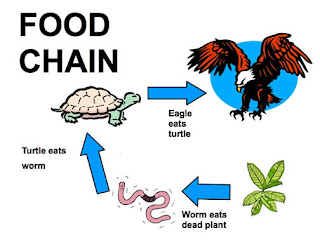
You give what you recieve. Us humans are always looking for power, superiority, and of course, revenge if something bad is done to us. We are always fighting for success, no matter who we may hurt in the process. I related this to what Dawkins talked about"cooperate" and "defect". If I have the chance to lose nothing but let someone else win everything, or win equally as my opponent, or lose along with my opponent, what would I do? Considering these options, I could either take a risk and win or take that risk and lose.
This is what Dawkins said about Tit for Tat. Both players begin cooperating, both beneffiting themselves equally, "in the next move, each player copies the other´s previous move" (pg. 210). This got me thinking: Having the chance to win everything, why wouldnt I take the risk? But its more complicated than that. We are always looking for competition in order to benefit ourselves and obtain success. This cooperate and defect game made me realize that despite the fact that we could lose, that small chance of achieving success over our opponent is what makes us competitive and fearless (in this case).
It happened to me when I was playing the game in class. The first two turns, my opponent and myself both scored cooperate, both benefitting ourselves with a total of .6 points each. But in the third turn, I asked myself "what if he cooperates? Why wouldnt he if he has done this for the first two turns?". So I defected, and as a matter of act, I won .5 points while he won none. This brings us back to Dawkin´s theory of Tit for Tat. The next turn, my opponent repeated the action I had done previously. I did the same, costing both if us the loss of .1 points. However, this theory or strategy didnt apply for the fifth and last term. I cooperated, thinking that since we had both lost this time it would be better not to risk it, costing me the loss of .1 points. This was Dawkin´s Naive Prober strategy. "Say on a random one and ten moves, it [the player] throws gracious defection and claims the high temptation score" (pg. 210). This is exactly what happened. Temptation was what led us to take the risk of defecting, and we both won but list as well.

This blog will be one of the many that I have written that criticize human behaviour and society. We are at a constant competition, our lives revolve around it, even though we may not notice. However, even though this selfishness and competition may lead us to our wanted success, it may also make it hard to trust others, which is exactly what Darwin shows in this game. In some cases, due to the lack of trust, people cooperate in all their moves. They do this because of the risk there is of defecting if the other person does the same. It is better to lose no points than to lose one right? Or is it better to take the risk of gaining 5 points while your opponent wins none?
It is a dilemma. But why do we defect if it is the only way that we can win maximum points? Why not cooperate all time, that way, there is a big chance of winning but losing nothing. We defect because of the slight chance we have of making our opponent failing greatly against us, winning advantage, which is in my opinion, what our society really revolves around: our constant urge for success, revenge, and benef






